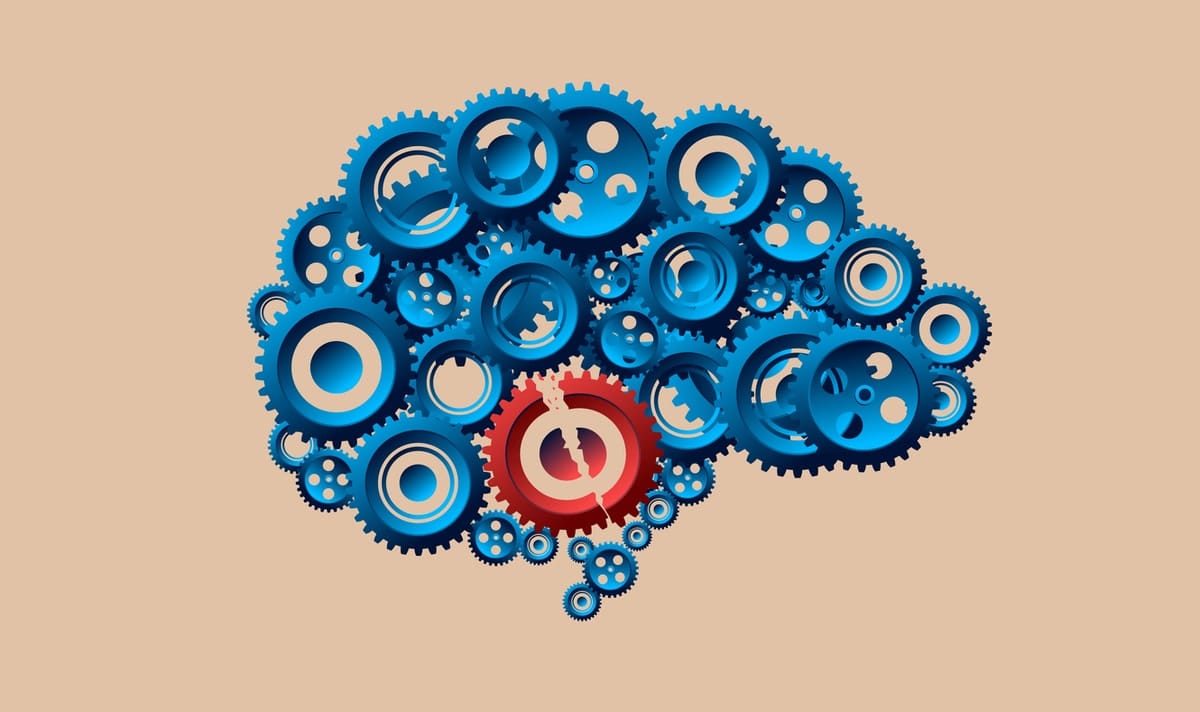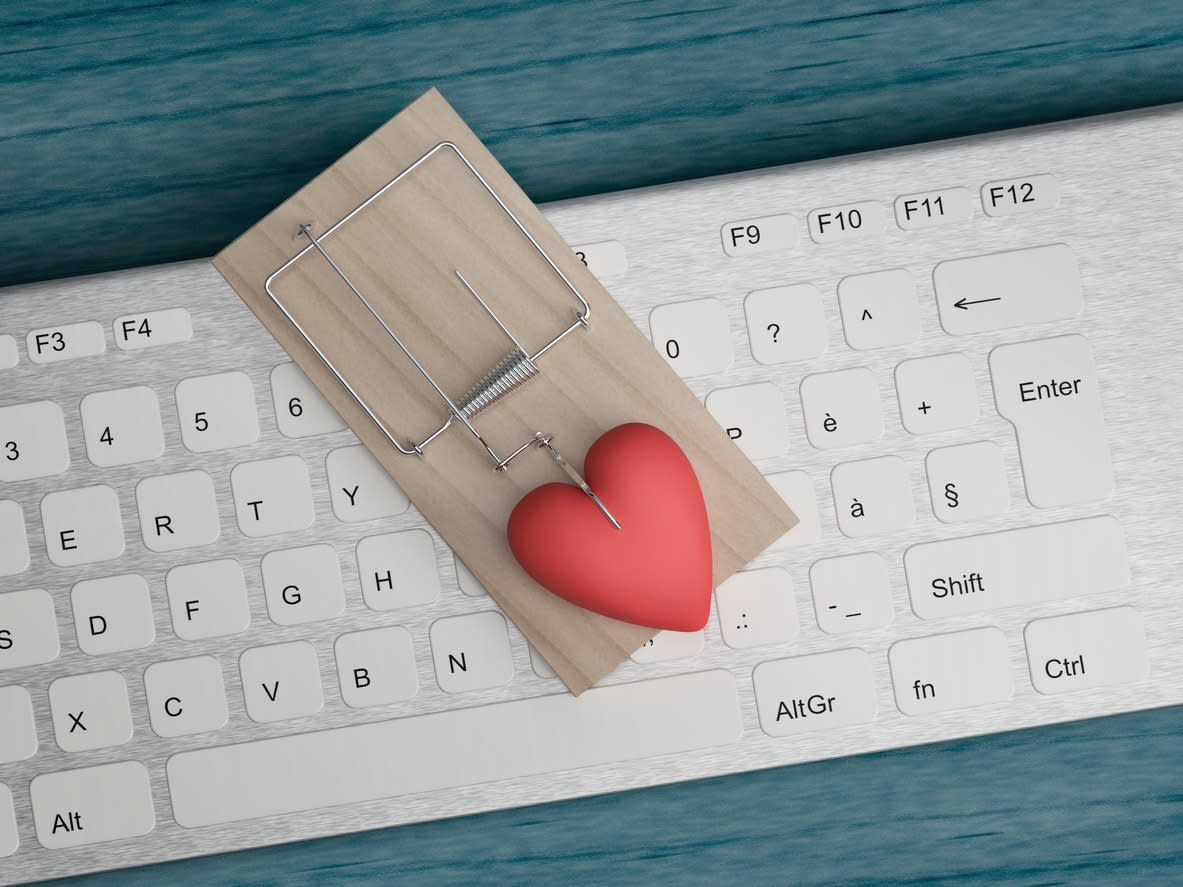
Back in 2005, Melbourne man Colin*, now 57, was involved in a road accident. “I came off second-best,” he says. He was riding a motorcycle, and the result was a traumatic brain injury.
It would be a long road to recovery. Life would never be quite the same. The last thing he needed was to be scammed online. But that’s what happened.
It was a romance scam, which Monash University researchers now believe may be especially difficult for people with an acquired brain injury (ABI) to spot, deal with, and recover from.
There’s little or no global research being undertaken in the area, despite the consequences of an ABI making a person highly vulnerable to online scams due to impaired memory, inflexibility, disassociation, disinhibition, impulsivity and loneliness.
“Most definitely,” says Colin. “People with ABIs have a multitude of problems associated with their injuries that mean they’re open to being at risk. Many cognitive problems lie under the surface, and as such aren’t addressed until they’re made aware of them.
“Also, many are provided with payouts after their accidents, and if not provided also with someone who can handle their finances for them, it can mean that they squander that funding.”
“In rehabilitation, the most common goal is to have a girlfriend. There’s a natural human need for companionship and friendship and romance. Relationship rates are low and divorce rates are high after a brain injury.”
After his accident, Colin and his wife began to live separately. This, too, is a common outcome, and one of the many factors in leading those with brain injuries toward scammers online.
He was living in supported accommodation, and undertaking a challenging university course. In 2014, after joining dating sites, he began an online relationship with “Doris”. She presented as a Canadian nurse living in Ghana.
The eventual narrative being spun by the scammer – or group of scammers – was that Doris had fallen in love with Colin, that they were in a relationship, and she would move to Australia. She sent him photographs. He was convinced to invest in gold and send her lots of money.

The requests escalated, and he drained his savings. Then Doris said (and even “showed” Colin in a video call) that she was in jail and needed more money for legal fees. He started borrowing money and siphoning from a joint account.
His ex-wife ended up telling the bank and the police – and also Colin’s neuropsychologist, Dr Kate Gould, a Monash University researcher who also works in private practice.
“I flagged with him that we needed a hard conversation about this topic,” says Dr Gould, a research fellow at the Monash-Epworth Rehabilitation Research Centre and Monash’s Turner Institute for Brain and Mental Health.
“We had been working together for some years and had a strong working relationship, which is important in addressing hard things together. We were coming from a place of trust.
“I wanted to listen to his perspective on what was happening, so rather than saying, ‘You’ve made a mistake, this is a scam’, it was more about trying to ascertain his level of awareness and try to draw out some sense of whether he was seeing the red flags that others were seeing.”
A two-year collaborative journey
Dr Gould found no previous research to help her work through Colin’s issues. She found plenty of online scams – and romance scams, in particular – but nothing on what she sees as a vulnerability of people with ABIs to scams.
She started the work, with Colin not just a patient or client, but also a collaborator. It was a two-year journey of recovery and insight.
As his awareness of what happened to him evolved, he presented (with Dr Gould) three times to clinicians and consumers at seminars and conferences. With the Turner Institute’s Professor Jennie Ponsford AO and Li-Ve Tasmania, they’ve co-designing an online site called CyberABIlity (with help from a grant by the Transport Accident Commission) specifically to help people with an ABI navigate their own online safety.
They’ve also won an award for clinical innovation from the Australasian Society for the Study of Brain Impairment.
“Kate’s work is very important,” Colin says. “It raises the knowledge of scams among people with ABIs, as there is very little in the way of published articles that informs clinicians that this can happen.”
The techniques and trigger-points of the romance scam are important here.
Australians paying a high price
Scams overall – romance, fake charities, fake jobs, false billing, sham investments, extortions, get-rich-quick schemes – have cost Australians a staggering $132m this year; the Australian Competition and Consumer Authority’s Scamwatch website shows “dating and romance” scams as the second-highest category.
All or nearly all are online and originate from organised scamming networks in West Africa. This piece in Wired (from two years ago) shows how the same scammers are now diversifying into mining for money from corporations.
But the romance scam is different – it plays on emotions, self-esteem and basic human desires.
“There is something appealing,” says Dr Gould, “and this group is likely to be vulnerable. Seventy-five per cent of brain injury survivors are male, with an average age of 35.
“In rehabilitation, the most common goal is to have a girlfriend. There’s a natural human need for companionship and friendship and romance. Relationship rates are low and divorce rates are high after a brain injury.”
Colin was “groomed” over a period of two years, she says, and the effect on him was serious. “There was a period of depression and a psychiatric inpatient stay,” says Dr Gould.
She was effectively treating him and working with him on novel treatment ideas in real time while he still believed “Doris” was real, and then, after understanding that she wasn’t, he suffered shame, embarrassment and humiliation.
“The scammer engages in such sophisticated grooming, there’s a strong emotional bond that feels real, which is potentially heightened by ABI,” Dr Gould says.
“A person might be socially isolated and online a lot without an awareness of how one can be scammed. Some people with an ABI don’t know what the word ‘scam’ means. With Col it seemed to fill a need in his life. He found it hard to switch it off and turn away.
“He was told he was loved, he was told he was in the centre of a drama around gold. But Col can’t remember a lot of these details. His memory of the scam comes from being reminded of what happened.”
He was in rehabilitation (such as occupational therapy and speech therapy) for the brain injury, but goals fell away during the course of the long-game scam.
“As a team, we all needed to be on board with that,” Dr Gould says. “The scam became all-encompassing. There was no space to explore his other goals. He was studying hard as well. He lost all social activities. Online was the only social connection.”
“The scam became all-encompassing. There was no space to explore his other goals. He was studying hard as well. He lost all social activities. Online was the only social connection.”
Dr Gould says when she surveyed 101 Australian and New Zealand clinicians in the brain injury field about their clients and romance scams, half said they had clients who had fallen victim.
Colin tells Lens: “I was under pressure. I was attempting to study two very difficult subjects while at uni, and wasn't really aware of what I was doing online.
“Over time I became besotted, and as such, when she requested money I provided it. At the time I was also very depressed, as a close relative had passed. I was also in possession of money provided by the person that had passed, so it wasn't felt that I really was in ownership of that money.”
Reframing identity a key factor
Dr Gould and Colin tried a series of psychological approaches, including cognitive behavioural therapy to challenge the accuracy of his beliefs, addiction treatment to stop him sending money, and roleplaying.
“A big part was reframing his identity,” she says. “Helping him see that he was a victim of a scam, and then support him to become a scam survivor, and see that as a positive identity to have.”
It worked.
Questions remain for the researchers. Dr Gould says they’re “pioneers” in this field, so there are more questions than answers.
Are people with ABIs more likely to be scammed over longer periods of time? Is it something about particular types of brain damage that lead to this vulnerability?
“Lots of questions like this need to be investigated,” she says.
* Colin's surname is withheld by request.





